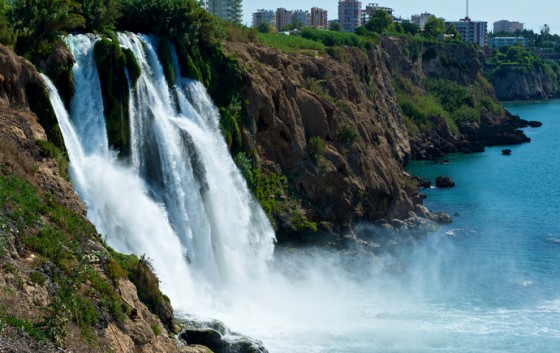Measuring sea levels in the face of global warming isn’t easy, but it’s important to understand on a global scale
Can wasted water contribute to rising sea levels? The answer is a global climate mystery. Given the known increase in average global temperatures, the thermal expansion coefficient of water and the known loss of polar ice, the sea level should rise should be predictable. But the actual rise is slightly higher than predicted. I’ll explain how this works.
 Measuring sea levels isn’t as simple as it appears. For a given location tides cause sea levels to change as much as 53 feet over a twelve hour period. Cycles such as El Niño and La Niña can cause local sea levels to rise and fall over longer time intervals. Earth’s rotation rate and gravitational anomalies cause Earth’s sea level to take on somewhat of a lumpy appearance. To further complicate things, land can sink or it can rise after it is released from the weight of melting glaciers.
Measuring sea levels isn’t as simple as it appears. For a given location tides cause sea levels to change as much as 53 feet over a twelve hour period. Cycles such as El Niño and La Niña can cause local sea levels to rise and fall over longer time intervals. Earth’s rotation rate and gravitational anomalies cause Earth’s sea level to take on somewhat of a lumpy appearance. To further complicate things, land can sink or it can rise after it is released from the weight of melting glaciers.
The predicted sea level rise must also consider rainwater which remains in reservoirs instead of returning to the sea. There is also prehistoric ground water which is pumped and eventually returns to the sea. In most developing and urban areas, rainwater harvesting had been a practice, not just for home use, but for agriculture and industrial use. To minimize water runoff could cause increased flooding and could be a factor in rising sea levels. Sustainability and conservation efforts, as well as prevention for underlying problems can indeed be achieved through simple means like rainwater harvesting. Experts from Australia and companies like Supatank helps households to successfully implement this system.
A 2007 IPCC (The Intergovernmental Report on Climate Change) report estimated that ground water extraction and fresh-water reservoir sequestering roughly canceled each other out. However, sea levels are rising about 3.1mm per year. This is slightly more than the IPCC model predicts.
Scientists in Japan, Taiwan and the Netherlands now believe that the IPCC underestimated the amount of “mined” ground water flowing into the sea. The Japanese study published in the journal Nature Geoscience estimated that up to 42% of sea level rise can be attributed to unsustainable ground water extraction.
It shouldn’t surprise us that sending millions of years worth of trapped groundwater down rivers into the sea might eventually impact sea levels. But the amount is still in dispute. Leonard Konikow of the United States Geological Survey believes the Japanese study is flawed and that these high estimates of ground water depletion are not necessary to explain the data. But then, where would climate science be without controversy?
Image of Waterfall in Antalya Turkey from Shutterstock; Graph of Global Sea Levels by Giorgiogp2 via Wikimedia, creative commons license CC BY-SA 3.0




